When Garry Cowan’s doctor saw he had a grey ring around his left eye, he told him to get to Ninewells Hospital immediately.
The former North Sea oil rig worker and RAF veteran asked him why and was told he was going to go blind.
“I remember asking the doctor how blind and he said it depends on how quickly you get to A&E,” the 43-year-old recalls.
“I realised how serious he was and my partner’s mum took me straight there.
“At first I lost my sight in my left eye.
“But a few days later I was completely blind.”
In the lead up to Garry going to the doctors he was experiencing really bad itching.
But while he didn’t have any red spots, it turned out he had chickenpox.
And this is what resulted in him losing his sight.
He has since had surgery to completely remove his eyes.
Yet Garry, who has lived in St Andrews for 21 years, is determined to show you can do anything you put your mind to.
Not only has he has gone on to become a top Scottish para-climber, but he has also mentored fellow veterans with sight loss – for which he has been recognised with a prestigious award.
Life changing health condition
Losing his eyesight in 2015, wasn’t the first time Garry had suffered a life-changing health condition.
Twelve years earlier while working at RAF Leuchars as an avionics engineer he broke his back in a parachute jump and had to learn to walk again.
“I was 22 when I did the parachute jump,” he says.
“I landed badly and just knew something was very wrong the minute my feet touched the ground.
“The pain hit me and I passed out.
“When I woke up, I couldn’t move and I started to panic. That’s when it hit home.
“It turned out I had snapped vertebrae in the middle of my spine.”
Garry was initially treated in hospitals in London.
Scans revealed he had two cysts on his vertebrae.
And he had to undergo several operations.
“I had a few operations to remove one of the cysts, but the other one is still there because nerves had grown into it.”
He adds: “I am just thankful to still be here.”
Learning to walk again
Back at RAF Leuchars, Garry spent two years learning how to walk again at a rehabilitation centre in Edinburgh.
“While I was there I was using light weights and exercises to build up my strength including core work.
“It was quite intense.
“But I was determined to walk again.”
Over time, Garry achieved his goal, although he still experiences discomfort and has to wear a back brace.
Being infected with chickenpox
It was more than a decade later, that Garry suffered the next devastating blow to his health.
Early in 2015 he contracted chickenpox.
But as he didn’t have the typical symptoms associated with the infection, Garry had no idea he had it.
He explains: “I was scratching like mad but I didn’t have any marks on my body.
“At first I thought maybe our dog had fleas.
“But the itching continued.
“I asked my partner Chris, 41, if he had changed the shampoo or the washing powder and he hadn’t.
“Then one morning I woke up and saw I had a grey ring around my left eye.
“Over the weekend the grey ring got bigger and I lost the sight in my left eye so on the Monday I decided to go to the doctor.”
That was when the doctor told him to go immediately to Ninewells Hospital.
How did Garry end up losing his sight?
At Ninewells doctors tried to save the sight in his right eye but the damage had already been done.
“The chickenpox had got into the retina in my left eye and started to eat away at it and over a few days I lost my sight in that eye.
“Then it moved into my right eye.
“I asked the doctor if I would be able to see again.
“But I was told there was pretty much a zero chance.
“I just cried after that.”
Developing a passion for climbing
After taking some time to come to terms with his disability, Garry travelled to North Wales to a Blind Veterans UK facility.
During his stay there, he signed up to learn how to climb.
“I was taken to an area next to Mount Snowdon and I climbed up a 90ft cliff!
“At the top I felt the wind blowing and all I could hear was the sound of the sea.
“I was shaking for the first time in years but it felt amazing.”
A few days later he was climbing in an indoor gym.
After building up his skills over two years, he took part in his first para-climbing competition in London.
And since then he has gone on to excel in the sport.
He has trained with the GB Paralympic climbing team and become an Olympic qualified GB climber.
Helping others affected by sight loss
Over the last few years Garry has helped other veterans affected by sight loss through Scottish War Blinded, Blind Veterans UK and Sight Scotland.
He also helps people with other disabilities and enjoys passing on his climbing knowledge.
In 2021 Garry won a ‘Role Model of the Year’ accolade after he was nominated by the charity Sight Scotland for his mentoring work with fellow veterans with sight loss.
Further surgery on his eyes
However, he also had a setback that year after he experienced a lot of pain with his eyes.
“My left eye shrunk down to the size of a pea and my right eye was trying to burst out the side of my head,” he says.
“Painful doesn’t even begin to describe it – I was on the maximum dose of morphine.
“In the end I had to have an operation to get my eyes removed in the August.
“The pain was gone the following morning after they were scooped out.”
Six months later he underwent another medical procedure to insert plastic eyes into his eye sockets which were moulded to fit.
After taking time to recover, he has now gone back to coaching.
He hopes to get back into climbing competitively within the next year.
Support from partner Chris
Throughout Garry’s health battle, his partner Chris Ross – who he is due to marry next year – has been there to support him.
“He has been there through everything and has been by my side since I went blind.
“I wouldn’t be here without Chris.”
While life hasn’t been easy, Gary believes having a positive outlook is important.
“For me life now consists of not letting anybody feel the way I felt when I first went blind.
“I want to help others affected by sight loss and teach them to go running, cycling, rowing, climbing the works.
“I am here to be used by Sight Scotland veterans for this.”
He adds: “Being positive is key.
“I want people to know that nothing is impossible if you put your mind to it.”
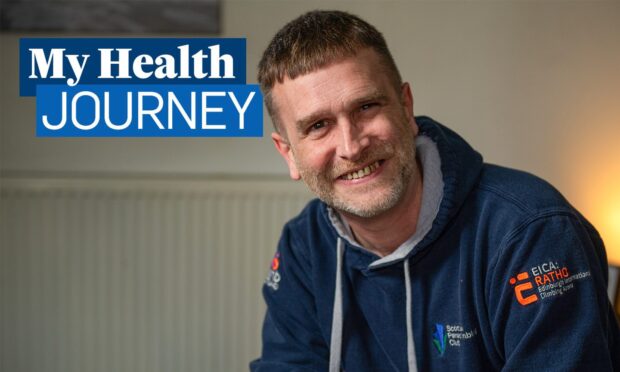
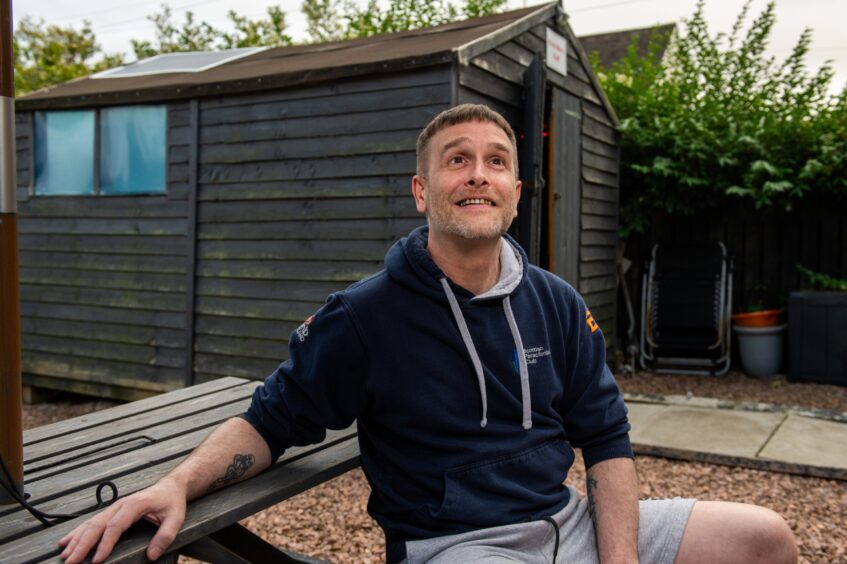
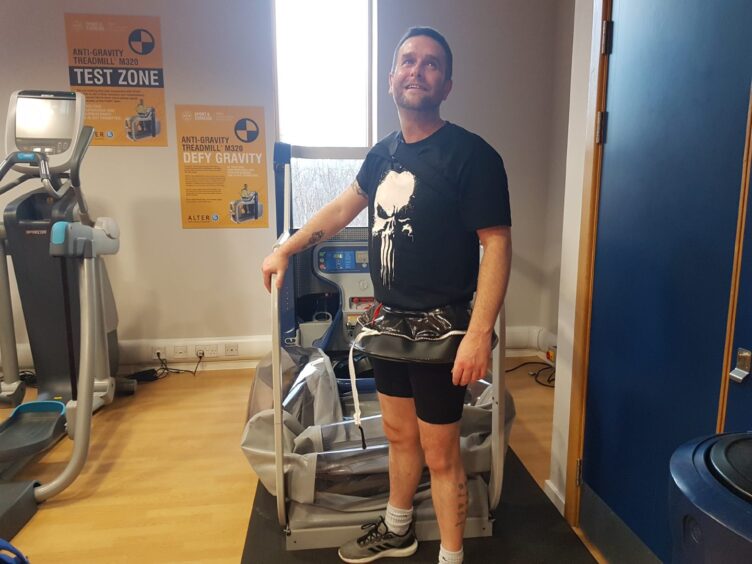
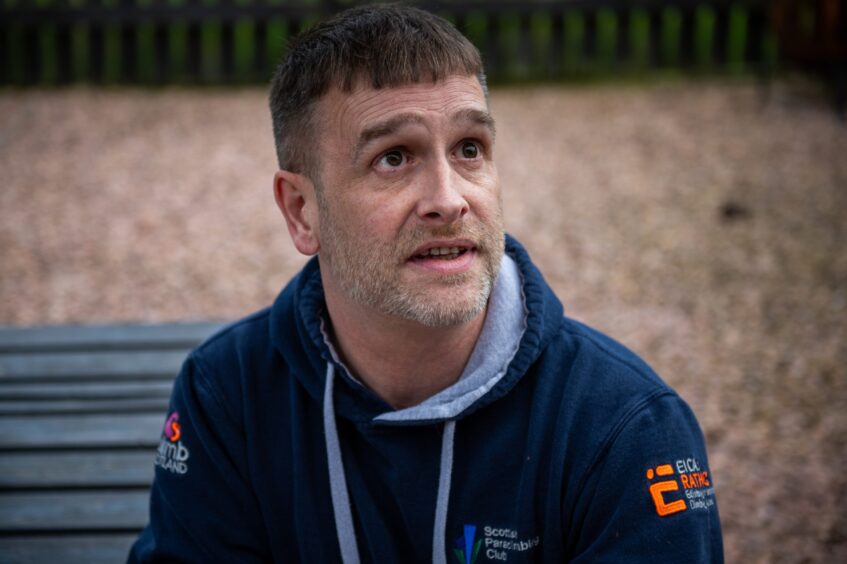
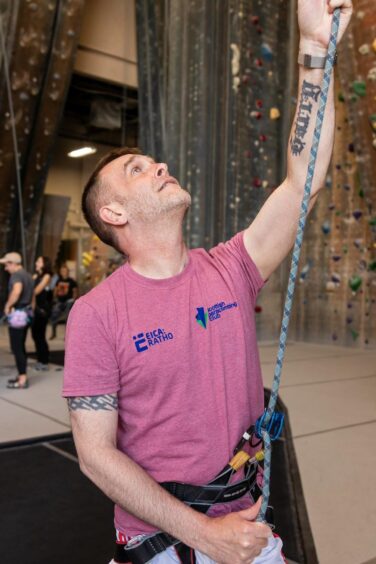
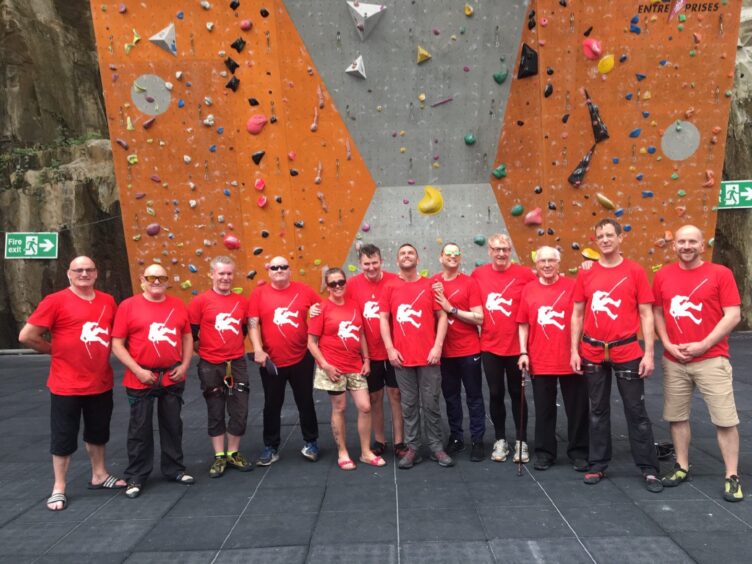
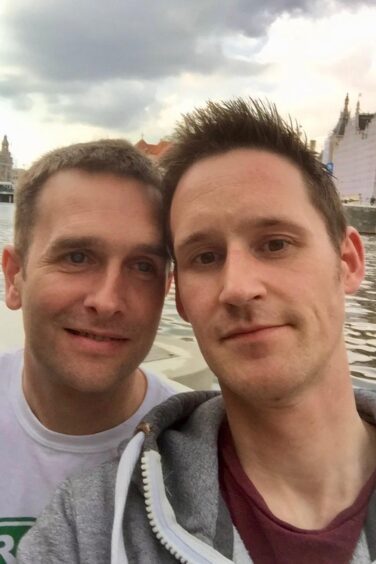
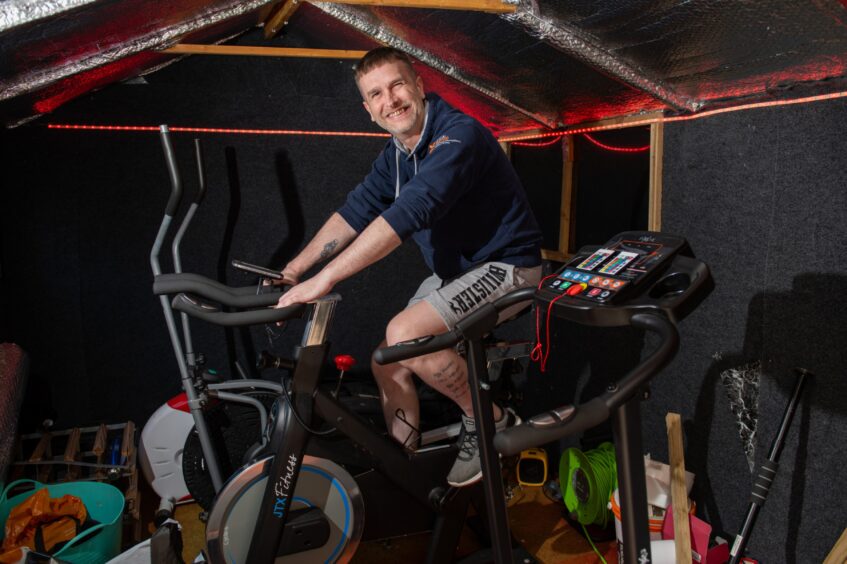





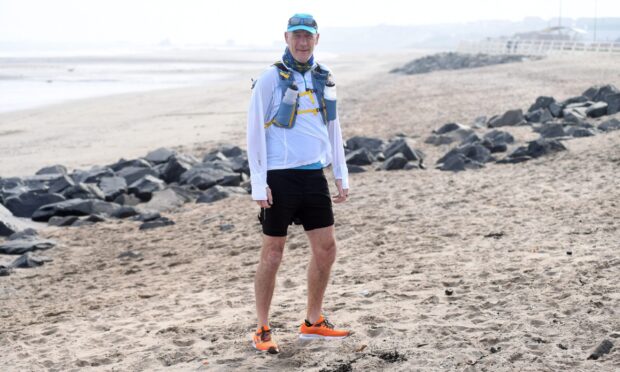
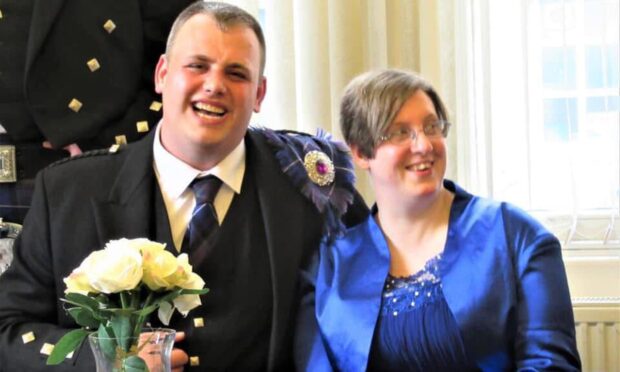
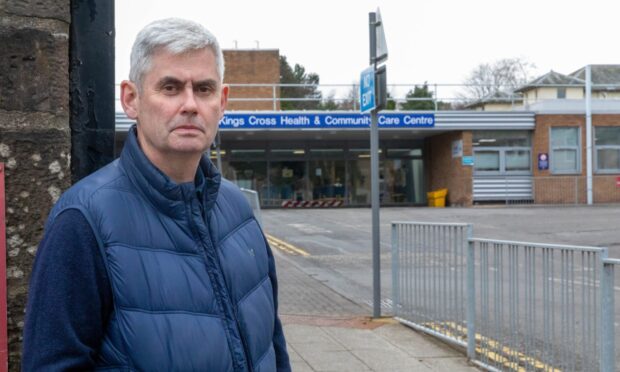
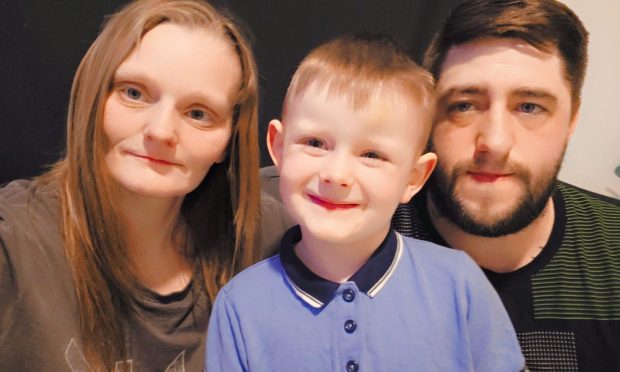
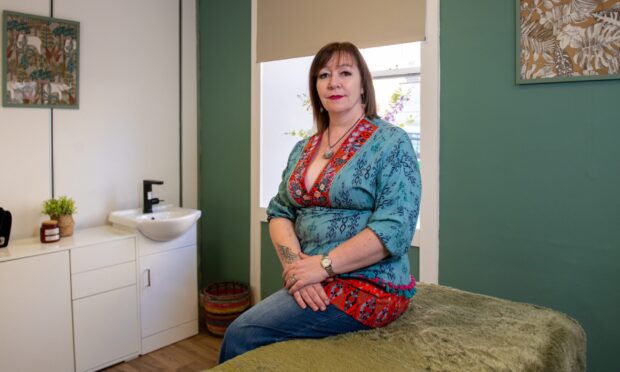
Conversation